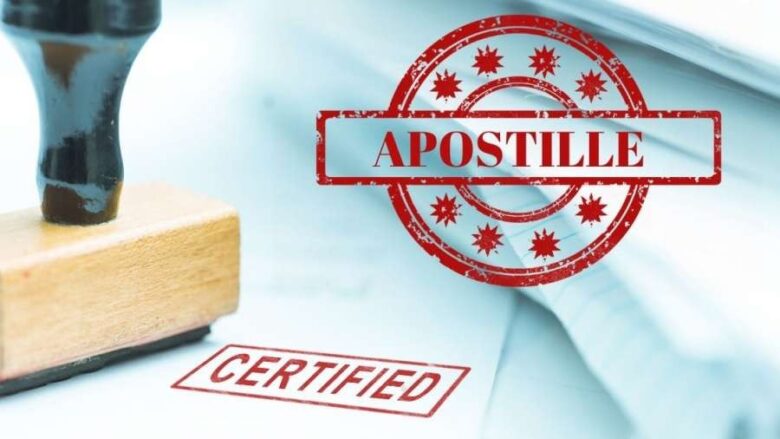The process of apostilling a document can seem daunting, especially if you’re unfamiliar with the intricacies of international legal procedures. An apostille is a certification that authenticates the origin of a public document, making it recognized and valid in foreign countries that are members of the 1961 Hague Convention. In the state of Florida, as with many other states, there’s a specific procedure to follow to ensure your documents are correctly apostilled.
This guide aims to demystify the process, providing you with a clear and concise roadmap to obtaining an apostille for your documents in Florida. Whether you’re planning to work, study, or conduct business abroad, this guide will be an invaluable resource in preparing your documents for international use.
Understanding Apostille and Notarial Certificates
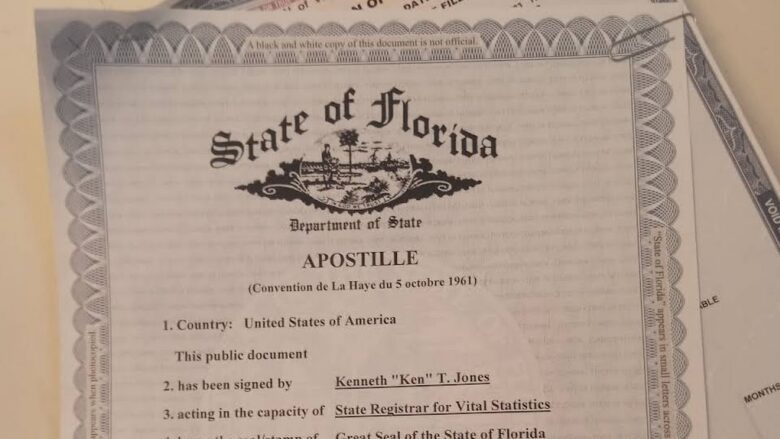
The term “apostille” might sound foreign to many, but its significance in international documentation is paramount. Established by the 1961 Hague Convention, the apostille serves as a standardized method of authenticating documents for use in foreign countries. Essentially, it’s a seal or certificate that verifies the authenticity of a public document’s signature, the position of the official who has signed the document, and, when necessary, the identity of the seal or stamp the document bears.
On the other hand, notarial certificates serve a similar purpose but are used for countries that are not members of the Hague Convention. In Florida, the distinction between these two is crucial, as the process and application for each differ slightly. Recognizing the difference and understanding the requirements for each can save you time and potential complications when preparing your documents for international recognition.
The Role of the Florida Department of State
In the state of Florida, the responsibility of issuing apostilles and notary certifications falls under the purview of the Florida Department of State. Specifically, the Florida Secretary of State is the sole competent authority authorized to issue these certifications. This centralization ensures that the process remains standardized and consistent across the state.
The Division of Corporations, a segment of the Department of State, handles these certifications. Their office, located at 2415 N. Monroe Street, Suite 810, Tallahassee, FL 32303, serves as the primary point of contact for individuals seeking to apostille their documents. For any additional issues or help you can contact outlets such as onesourceprocess.com.
The Two-Step Apostille Process
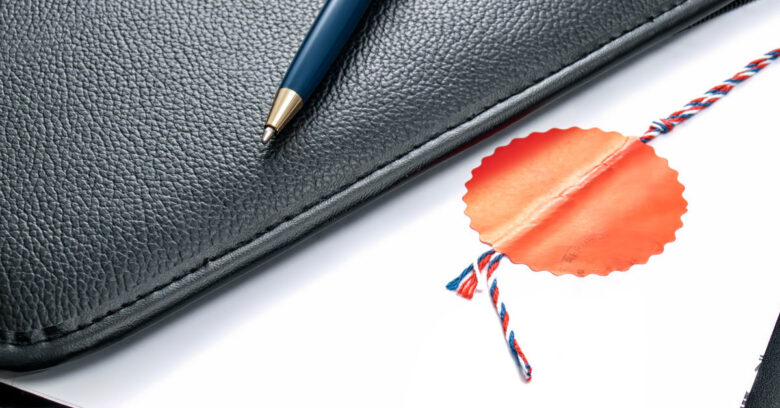
Apostilling a document in Florida is a two-fold process. Initially, you must obtain the vital record certificate from the Florida Bureau of Vital Statistics. This certificate serves as the foundational document upon which the apostille is based. Following this, the Florida Department of State, Division of Corporations, takes over, providing the actual apostille or notarial certification. It’s essential to understand this sequence, as any deviation or oversight can lead to delays or the rejection of the apostille request.
Consulting the Relevant Embassy or Consulate
Before diving into the apostille process, it’s prudent to consult the embassy or consulate of the country where the document will be used. Different countries, even those party to the Hague Convention, might have specific requirements or nuances related to the apostille process. By reaching out to the relevant embassy or consulate, you can ensure that your document meets all necessary criteria, minimizing the chances of complications down the line.
Ordering Online with VitalChek
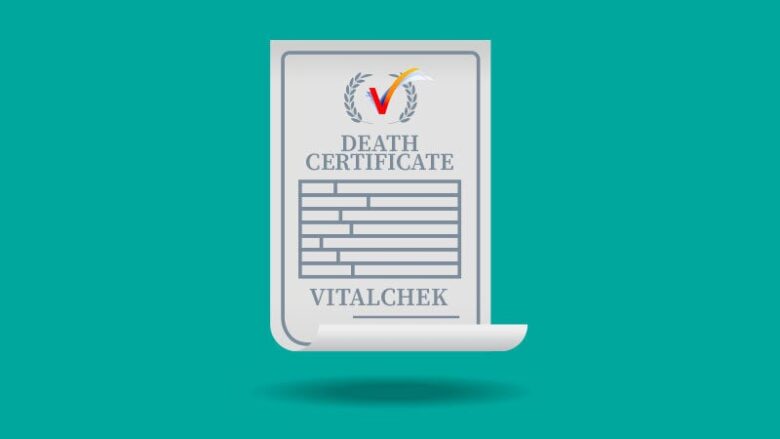
For those seeking a streamlined approach, VitalChek offers an online platform to order vital record certificates. This platform provides a user-friendly interface, guiding you through the steps required to obtain the necessary documents. Once you’ve secured the vital record certificate through VitalChek, you can then proceed to the apostille process with the Florida Department of State.
Ordering from the Florida Bureau of Vital Statistics
Alternatively, you can directly order vital record certificates from the Florida Bureau of Vital Statistics. This bureau maintains a comprehensive archive of vital records, ensuring authenticity and accuracy. When ordering, ensure that you provide all necessary details and adhere to the bureau’s guidelines to expedite the process.
Available Forms for Different Documents
When dealing with the intricate process of apostilling documents, it’s vital to recognize that distinct documents necessitate specific forms. For instance, if you’re looking to validate the authenticity of a birth certificate for international use, you’d opt for the Apostille Birth Application. Similarly, there’s the Apostille Marriage Application tailored for marriage certificates. Other forms are designed for different types of documents, such as diplomas, legal agreements, and affidavits. Navigating these forms can be overwhelming, but it’s essential to meticulously select and fill out the correct one. Making the right choice ensures not only the legitimacy of your documents on the global stage but also the seamless progression of your apostille request.
Penalties for False Information
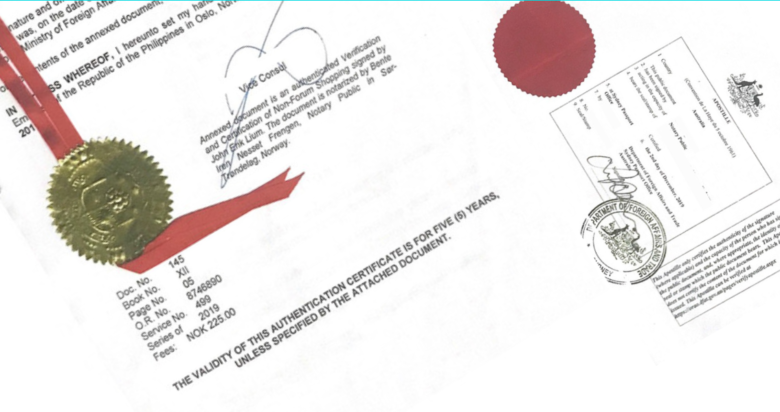
The apostille process isn’t merely a bureaucratic procedure; it’s a cornerstone of trust in international document recognition. Thus, maintaining integrity and precision throughout is non-negotiable. Any attempts to provide misleading information on certificates or deceitfully accessing sensitive data can have dire repercussions. Such malpractices might result in hefty fines, legal battles, or even imprisonment. The gravity of these penalties underscores the importance of total transparency in the apostille process. It isn’t just about ticking boxes but ensuring every piece of information submitted is both accurate and can withstand scrutiny.
Contacting the Florida Department of Health
If you find yourself navigating the complexities of the apostille process in Florida, especially concerning vital records like birth, death, or marriage certificates, the Florida Department of Health is an indispensable ally. This department is more than just a regulatory body. They offer a wealth of knowledge, helping individuals understand the nuances of obtaining and authenticating vital record certificates. Their trained professionals can answer questions, clear up ambiguities, and provide step-by-step guidance to ensure your documents are perfectly prepped for the apostille process. Leveraging their expertise can streamline your journey and give you the peace of mind that your paperwork is in impeccable order.
The Importance of Authenticating Official Signatures
The core purpose of an apostille is to certify the authenticity of the issuing official’s signature on a public document. This certification ensures that the document is recognized and accepted in foreign countries that are members of the Hague Convention. It’s a testament to the document’s legitimacy and the credibility of the issuing authority.
Conclusion
Apostilling a document in Florida, while detailed, is a straightforward process when approached methodically. By understanding the steps involved, consulting the relevant authorities, and ensuring the accuracy of all information, you can seamlessly navigate the process. Whether for personal, educational, or business purposes, an apostille ensures that your documents carry weight and legitimacy on the international stage.

